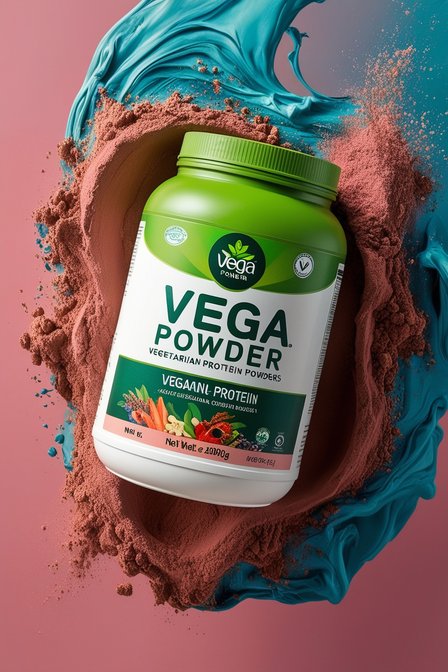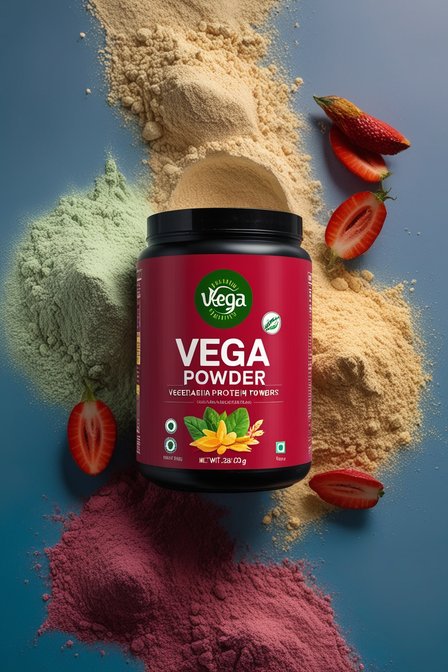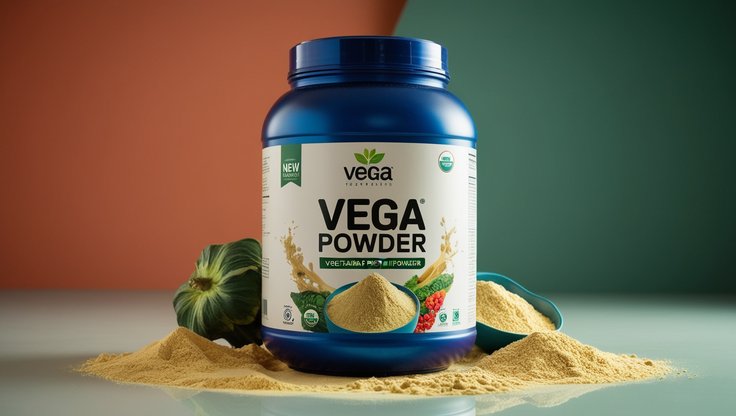Vegan Protein for Muscle Gain: A Comprehensive Guide
Introduction
The journey to building muscle is often associated with images of protein shakes filled with whey and diets rich in animal proteins. However, as more individuals adopt vegan lifestyles, the question arises: can one gain muscle effectively with vegan protein sources? The answer is a resounding yes. This comprehensive guide delves into the world of vegan protein, offering insights and practical advice for those looking to build muscle while adhering to a plant-based diet.
Understanding Protein and Muscle Gain
Proteins are the building blocks of muscle. They consist of amino acids, which are essential for repairing and building new muscle tissue after exercise. When you engage in resistance training or any muscle-strengthening activities, tiny tears form in your muscle fibers. The body repairs these tears using amino acids, resulting in muscle growth.
Traditionally, animal products have been the go-to sources for complete proteins, which contain all nine essential amino acids the body cannot produce on its own. However, many plant-based sources also provide these essential amino acids, making them viable options for muscle gain.
Complete vs. Incomplete Proteins
The distinction between complete and incomplete proteins is crucial for understanding how to build muscle on a vegan diet. Complete proteins contain all nine essential amino acids in adequate amounts. Examples include quinoa, soy, and hemp seeds. Incomplete proteins, on the other hand, lack one or more of these amino acids. However, by combining different plant-based foods, vegans can create complete protein profiles.
High-Quality Vegan Protein Sources
Legumes
Legumes, including lentils, chickpeas, and black beans, are excellent sources of protein. They are not only rich in amino acids but also provide fiber, iron, and other essential nutrients. Incorporating a variety of legumes into your diet can help ensure a diverse amino acid intake.
Soy Products
Soy products such as tofu, tempeh, and edamame are among the best plant-based protein sources. Soy is a complete protein, meaning it contains all nine essential amino acids. Additionally, soy products are versatile and can be used in a variety of dishes, from stir-fries to smoothies.
Quinoa
Quinoa is a unique plant-based protein source because it is a complete protein. It is also rich in magnesium, iron, and fiber. Quinoa can be used as a base for salads, as a side dish, or even as a breakfast cereal.
Hemp Seeds
Hemp seeds are another complete protein source, offering a good balance of essential fatty acids along with protein. They can be added to smoothies, sprinkled on salads, or incorporated into baked goods.
Nuts and Seeds
Nuts and seeds, including almonds, chia seeds, and pumpkin seeds, provide a good amount of protein. They also contain healthy fats, which are important for overall health and can aid in muscle recovery.
Protein Powders: A Convenient Option
For those who struggle to meet their protein needs through whole foods alone, vegan protein powders can be a convenient solution. These powders are made from various plant-based sources, such as pea protein, brown rice protein, and hemp protein. They can easily be added to shakes, smoothies, or recipes to boost protein intake.
Meal Planning for Muscle Gain
Effective muscle gain requires more than just consuming enough protein; it also involves strategic meal planning. A well-balanced vegan diet should include a variety of protein sources, ensuring a complete amino acid profile throughout the day. Here are some tips for planning your meals:
Breakfast
Start your day with a protein-rich breakfast. Options include a tofu scramble with vegetables, a smoothie with added protein powder, or oatmeal topped with nuts and seeds.
Lunch
For lunch, consider a quinoa salad with mixed vegetables and a side of lentil soup. Alternatively, a wrap filled with hummus, chickpeas, and fresh greens can provide a satisfying and protein-packed meal.
Dinner
Dinner can include dishes like tempeh stir-fry with brown rice, black bean tacos, or a hearty lentil stew. These meals are not only rich in protein but also offer a variety of flavors and nutrients.
Snacks
Snacking can help maintain protein intake throughout the day. Opt for snacks such as a handful of almonds, a protein bar, or carrot sticks with hummus.
The Role of BCAAs in Muscle Gain
Branched-chain amino acids (BCAAs) play a critical role in muscle protein synthesis. The three BCAAs are leucine, isoleucine, and valine. Leucine, in particular, is essential for triggering muscle growth. While animal products are rich in BCAAs, vegan sources like legumes, soy products, and certain grains can also provide these important amino acids.
Supplementing for Success
While it's possible to meet all your protein needs through a well-planned vegan diet, some individuals may benefit from supplements. In addition to protein powders, BCAA supplements can help support muscle growth and recovery. Creatine, a popular supplement among athletes, is another option that can be synthesized from amino acids found in vegan foods.
Common Myths and Misconceptions
Myth: Vegan Diets Lack Sufficient Protein
One common misconception is that vegan diets cannot provide enough protein for muscle gain. However, with proper planning and a focus on diverse protein sources, vegans can easily meet their protein needs.
Myth: Plant-Based Proteins Are Inferior
Another myth is that plant-based proteins are inferior to animal proteins. While it's true that some plant proteins are incomplete, combining different sources throughout the day ensures a complete amino acid profile.
Myth: Vegans Cannot Build Muscle
This myth is debunked by countless vegan athletes and bodybuilders who have successfully built muscle on a plant-based diet. With adequate protein intake and resistance training, muscle gain is entirely achievable.
Success Stories
Many athletes and bodybuilders have thrived on vegan diets, demonstrating that plant-based protein is effective for muscle gain. Notable figures include bodybuilders like Torre Washington and Nimai Delgado, who have achieved impressive physiques while adhering to vegan diets.
Conclusion
Building muscle on a vegan diet is not only possible but can also be highly effective with the right approach. By understanding the importance of complete proteins, incorporating a variety of plant-based protein sources, and strategically planning meals, vegans can achieve their muscle gain goals. Supplements can provide additional support, and debunking common myths helps to reinforce the viability of a vegan diet for athletes and fitness enthusiasts. Whether you are new to veganism or looking to optimize your muscle-building efforts, this guide offers the foundation you need to succeed.




